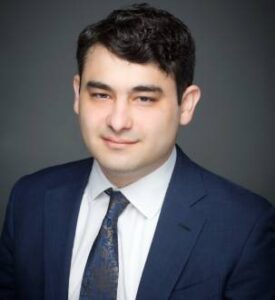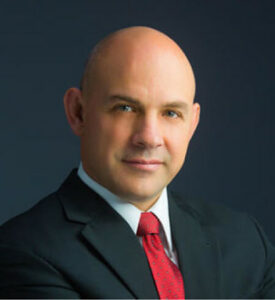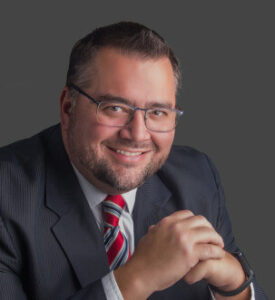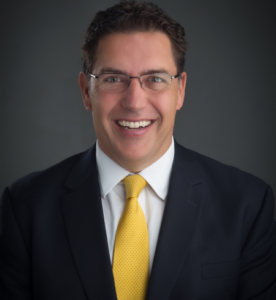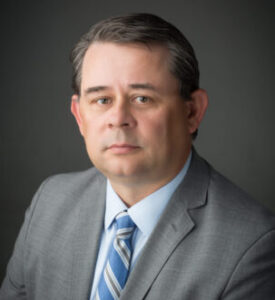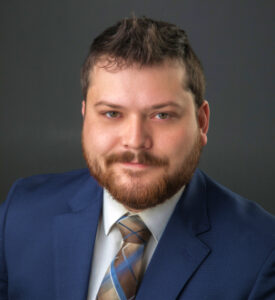2017 Scholarship Winners
Sharing What Justice Means to You
At Parnall Law, we believe in giving back to the community. And one of the best ways to give back is to support the young people in our community who we feel will continue to “pay it forward.”
This year, Parnall Law planned to award $5,000 in scholarships to three New Mexico high school students who best answered our prompt of ‘What does justice mean to you?’ We had many great submissions and could not just choose one winner for third place. We ended up awarding $6,000 in scholarships to four deserving young people who competed in our essay contest. We would like to congratulate those students who won and recognize their thought-provoking work.
First Place – $2,500
- Isabel Spafford, Sandia High School
Second Place – $1,500
- Megan Rivera, La Cueva High School
Third Place (tie) – $1,000 each
- Luis Calderon, Atrisco Heritage Academy High School
- Nina Morales, Albuquerque High School
What Does Justice Mean to You?
Isabel Spafford, Sandia High School
 Majd loves the dabkah.
Majd loves the dabkah.
I met him when I was sixteen, at a mock trial in Poland. I was thrilled by the novelty, by the unexpected and undeserved opportunity of my situation, so despite my jet lag I was eager to meet everyone around me. When he told me he was from Syria, I was shocked.
It was November 2015, and the media coverage for Syrian refugees was at its peak. I had wept with the rest of the world at the horrific images. But to me, those refugees existed in another world. That devastated world seemed like something out of a movie. How could families fleeing war-torn cities be real in the same way that going to school in the morning was real, or eating lunch was real? There was a dramatic disconnect in my mind from ordinary life and the hellish, war-ravaged world I saw in the media.
That disconnect was mended for me in the form of Majd, who sat next to me eating ham and cheese on toast and told me about his home. When I asked him to tell me about life in Syria, he didn’t answer with stories of a war-destroyed city. His eyes lit up, and he told me, longingly, of dancing the dabkah at weddings and parties. The dabkah was danced by making a line, arms around each other’s shoulders, and crossing one’s feet. He danced it with practiced grace, with the air of having danced it many times. It struck me as the gut-wrenching images of Aleppo had not: not only were so many lives lost, but an entire culture and world were torn apart with them. Majd had nowhere to dance the dabkah.
With this revelation came a new concept of justice. Justice had always seemed to me to be a legitimate form of revenge. If someone acted immorally, justice meant punishing them in equal measure to their crime. After meeting Majd, however, I realized that punishment was the means to achieve justice, not the ends. The end goal was not to punish those who were wrong, but rather to protect those who have been, or could be, wronged. Bashar Al Assad, for example, as president of Syria, is largely responsible for the thousands of Syrian lives destroyed, displaced, or ended. His punishment, however, is not only unfeasible at the present, but also would not bring justice for the people his actions have affected. Justice means protecting and defending the innocent victims of the Syrian civil war. Punishing the guilty is only a fragment of what justice means. Protecting the innocent is the root of justice.
Because of this, I want to help those fleeing violence to find a place where they are safe from war, where they are sheltered and welcomed. No one can stop war, and no one can restore the cultures destroyed by it. But justice means everyone deserves the right to eat ham and cheese on toast and dance the dabkah in safety.
Megan Rivera, La Cueva High School
 “…with liberty and justice for all.”My fellow students and I recite the Pledge of Allegiance every morning before the advent of the school day. The last phrase, “…with liberty and justice for all,” defines American democracy and reasserts our allegiance to upholding the fundamental maxims of that democracy. How does one define justice, however? Some might argue for the ancient definition found in Mesopotamian law, in which justice means “an eye for an eye.” In this interpretation, due process is only achieved when the severity of the punishment matches the cruelty of the crime. Others might contend that justice means fairness for all, or a strict adherence to the laws we have created to govern ourselves.
“…with liberty and justice for all.”My fellow students and I recite the Pledge of Allegiance every morning before the advent of the school day. The last phrase, “…with liberty and justice for all,” defines American democracy and reasserts our allegiance to upholding the fundamental maxims of that democracy. How does one define justice, however? Some might argue for the ancient definition found in Mesopotamian law, in which justice means “an eye for an eye.” In this interpretation, due process is only achieved when the severity of the punishment matches the cruelty of the crime. Others might contend that justice means fairness for all, or a strict adherence to the laws we have created to govern ourselves.
For me, justice is the very foundation of a fair and prosperous society. Justice is synonymous with receiving what it is we rightfully deserve, both in respect to our status as citizens of the United States and the choices we make with the free will that stems from that citizenship.
Justice is an inherent part of the legal system. As a nation, we punish actions or words that are wrong and fight to uphold what we believe to be good. We do our best to punish the guilty and to protect the innocent, so that a safer version of society will ultimately prevail. Enforcement of the law involves a steep sense of fairness and moral righteousness, and it is undoubtedly essential in maintaining order.
That being said, I also find it important to consider the broader implications of justice in the United States as an ideal that would assure opportunity for every single American, regardless of sex, race, age, health, class, or religious beliefs. The concept of justice has important social implications that I believe are often overlooked. Every person deserves to be treated with the compassion and fairness warranted by their actions and how they treat others. Every child deserves the right to an education, and every American deserves access to the resources essential for living a successful life. While everyone’s ambitions and skills differ, the idea of providing opportunity for those who seek it is not only a vital aspect of the American Dream, but also the overarching definition of true justice.
My fellow students and I recite the Pledge of Allegiance every morning before the advent of the school day. We stand up from our desks, dutifully recite the words we have had memorized since kindergarten, and then we sit back down. The pledge reaffirms our nation’s commitment to what is good and what is true, and it confirms the ideal of opportunity for any person willing to work for it. The pledge reminds that I am proud to live in nation that promises “…liberty and justice for all,” and it reminds that I am willing to work with my fellow citizens to make that statement a reality for everyone who calls this nation home. This, more than anything, is what justice means to me.
Luis Calderon Jr., Atrisco Heritage Academy High School
 Justice is the fair treatment and behavior of individuals, and the ability of being impartial in the punishment of wrong doings and the protection of civil rights. All people should have their “unalienable rights” as depicted in the United States Constitution. However, if a person commits a crime, the punishment should be equal as it would be for any other citizen of given country. It can be described as a theory where all people are treated and disciplined to the same regulations and expectations.I believe that people should be able to trust their government in providing justice to themselves and their families. Everyone should have the impression that they are safe; that no incorrect action will be acted upon them that will significantly impact their lives in a negative and harsh way. For example, just because I am part of a minority group does not mean that I should be treated unfairly in the country that I love as much as the majority in this country does. As James Madison portrayed in Federalist #51, “even the stronger individuals are prompted, to submit to a government which may protect the weak as well as themselves.” This means that a government that expresses the preferences of the majority should not diminish the rights of the minorities. The government is built with the purpose of implementing order and justice so that no one, including minorities, feels deprived of their civil rights in the United States.
Justice is the fair treatment and behavior of individuals, and the ability of being impartial in the punishment of wrong doings and the protection of civil rights. All people should have their “unalienable rights” as depicted in the United States Constitution. However, if a person commits a crime, the punishment should be equal as it would be for any other citizen of given country. It can be described as a theory where all people are treated and disciplined to the same regulations and expectations.I believe that people should be able to trust their government in providing justice to themselves and their families. Everyone should have the impression that they are safe; that no incorrect action will be acted upon them that will significantly impact their lives in a negative and harsh way. For example, just because I am part of a minority group does not mean that I should be treated unfairly in the country that I love as much as the majority in this country does. As James Madison portrayed in Federalist #51, “even the stronger individuals are prompted, to submit to a government which may protect the weak as well as themselves.” This means that a government that expresses the preferences of the majority should not diminish the rights of the minorities. The government is built with the purpose of implementing order and justice so that no one, including minorities, feels deprived of their civil rights in the United States.
The Supreme Court has the job of judicial review, which requires them to review all acts of the Executive Branch and the Legislative Branch, and determine whether or not they are constitutional. To me, the Judicial Branch plays such a crucial role in the political process that decides how certain individuals are affected by certain laws and procedures. They are responsible for the most important aspect of justice and it can be debated that without them, justice would not exist. Hence, justice is of utmost importance to achieve social, economic, and political prosperity. If a lot of individuals are allowed to pursue their own goals without any barriers included, then that attaches an additional definition to justice, where everyone has an equal opportunity at success.
Justice can be achieved in the United States when everyone has equal rights and has equal opportunities at success. By my observations, I truly believe that the United States is close to achieving complete justice. Even though there may be some ideas that are not just, the majority of them can be considered just in their intentions. In summary, justice should be monitored closely by the United States government and be based off the United States Constitution. All people should be equally protected by the law and be treated justly according to that same law.
Nina Morales, Albuquerque High School
 Proper administration of the law and fair treatment of all individuals under the law is the legal interpretation of justice. Justice is legally important to our society because it ensures that every human being is treated equally under the protection of the bill of rights which also provides a safe environment for all people. However, the meaning of justice can be varied upon culture and the personal theory of individuals.
Proper administration of the law and fair treatment of all individuals under the law is the legal interpretation of justice. Justice is legally important to our society because it ensures that every human being is treated equally under the protection of the bill of rights which also provides a safe environment for all people. However, the meaning of justice can be varied upon culture and the personal theory of individuals.
Fairness for all people no matter the circumstances is the undermining factor of every possible definition of justice.Through personal experiences, injustice has made a huge impact in my life and its successes. At the age of seven, I was diagnosed with a skin disease called Scleroderma. Scleroderma is a chronic connective tissue disease that hardens the skin on my left leg making mobility in my knee very limited. I have always been passionate about sports, specifically softball. Growing up it was hard to ignore the fact that I had a disability and knew I was being treated differently from other athletes. When I was eleven years old, I began playing on a travelling team named Albuquerque Venom. The pain I experienced was both physical and emotional for the following reasons. First, my knee could barely keep up with how much I was practicing but I still put in the work to become a better player. Second, I wasn’t receiving the outcomes I wanted on the field because I was never given the opportunity. My coach would just repeat the same phrase, “I don’t want to put you in because of your knee”.
I knew that I deserved to be on that field just as much as everybody else. Later that season I was kicked off the team because they had found a replacement for me, one that was considered, more “healthy”. It broke my heart, but it didn’t break my soul, and later I would have my own justice.
My freshman year I convinced my dad to create our own team, New Mexico Poison, which gave me the chance to show my true potential and talent. Our first season, we took third place in state competing against eighteen year olds when we were only sixteen. In that same tournament we played Albuquerque Venom and beat them sixteen to zero! I personally had three base hits with one being a stand up double.
My team continues to play in many areas of the country competing against the best club programs and receiving recognition from many colleges. Although I will not play college softball, I have accepted my admission into the University of Nevada Las Vegas where I will study business. My disease was a blessing in disguise because it forced me to work harder than everyone else to receive the same opportunities which ultimately made me a stronger woman. My positive attitude and work ethic gave me the resilience I needed to be a successful student athlete and to me, that is justice.




